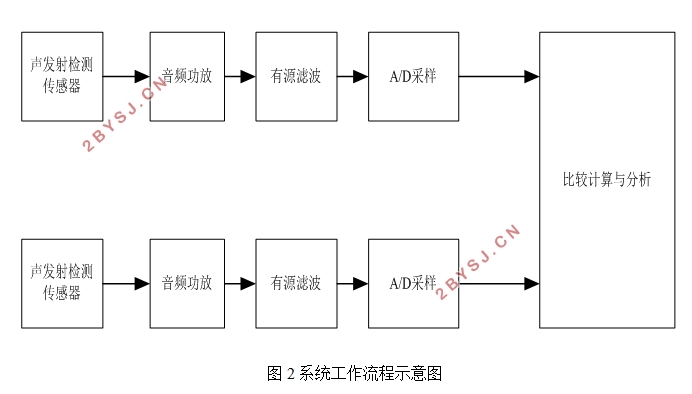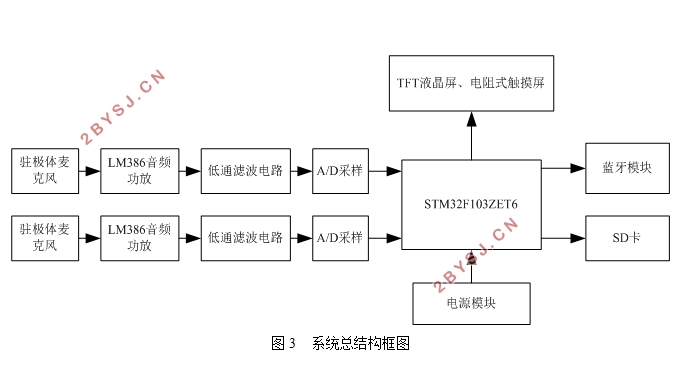一种简易声发射振动检测仪设计
无需注册登录,支付后按照提示操作即可获取该资料.
一种简易声发射振动检测仪设计(论文15000字)
摘要:声发射检测技术在无损检测领域应用十分广泛,其有传统无损检测技术无法比拟的优越性。本设计采用驻极体麦克风采样声发射信号,利用高性能STM32嵌入式处理器分析采样信号,制作出低成本高性能的流体泄漏声发射检测系统。传统声发射检测仪采用特制压电陶瓷传感器,采样音频频域窄,成本高;本设计利用计算机处理速度快、效率高的特点,将大部分模拟信号转换成数字信号处理,利用卡尔曼滤波算法替代不稳定的有源滤波器,简化了电路规模,降低了成本,提高了系统的稳定性。另外,随着物联网技术发展,数据采集变得更加方便,本设计实现蓝牙传输功能,可通过智能手机、个人电脑获得检测状态信息。
关键字: 声发射;无损检测;卡尔曼滤波;物联网
Design of a digital frequency characteristics tester
Abstract: Acoustic emission detection technology in the production of life in the field of nondestructive testing is very extensive, its traditional nondestructive testing technology can not match the superiority of. This design uses the microphone sampling acoustic emission signal, the use of high-performance STM32 embedded processor analysis of sampling signals, the production of low cost and high performance of the fluid leak detection system. Traditional acoustic emission detector adopts specially made of piezoelectric ceramic sensors, sampling frequency audio narrow, high cost; the design using computer processing speed is quick, the efficiency is high, most of the analog signal is converted into digital signal processing, using Kalman filtering algorithm instead of the instability of the active power filter, simplifying the circuit scale, reduces the cost, improves the stability of the system. In addition, with the development of Internet of things technology, data acquisition becomes more convenient, the design of Bluetooth transmission function, can get the state information through the smart phone.
Keywords: Acoustic emission; non destructive testing; Kalman Filter; Internet of things (IoT)



目 录
摘要 I
Abstract II
1绪论 1
1.1 课题研究背景 1
1.2课题研究现状 1
1.3本课题设计的主要内容和要求 1
2 声发射振动检测仪概述 2
2.1 声发射振动检测仪原理 2
2.2 总体系统设计方案 3
2.3方案论证 4
2.3.1 控制器模块 4
2.3.2声发射检测传感器 5
2.3.3 A/D采样 6
2.3.4显示模块 6
2.3.5上位机通讯方式 7
2.3.6 低通滤波模块 7
2.3.7 上位机开发环境 7
3硬件设计 8
3.1声发射检测传感器电路 8
3.2音频功放电路 9
3.3有源滤波电路 10
3.4 A/D采样电路(电压基准电路) 11
3.5单片机最小系统电路 11
3.6电源电路 13
3.7 TFT液晶屏、触摸屏与单片机连接电路 14
3.8蓝牙无线传输电路 15
3.9 SD卡与单片机连接电路 16
4系统软件设计 16
4.1单片机程序设计及原理 16
4.1.1 开发工具使用与介绍 16
4.1.2 AD采样程序设计 17
4.1.3 声波参数测量程序设计 18
4.1.4卡尔曼滤波算法程序设计 19
4.1.5 连续测量功能的软件设计 21
4.1.6 声源定位功能的软件设计 22
4.1.7 SD卡驱动程序设计 23
4.1.8 FAT文件系统介绍与移植 24
4.2 LabVIEW上位机软件设计 25
4.2.1 Labview软件介绍 25
4.2.2波形文件保存程序设计 26
4.2.3 VISA串口设计 27
4.2.4波形文件保存程序设计 28
5 调试与检测 29
5.1 声波参数检测硬件调试 29
5.2 声源定位性能测试 30
5.3 上位机功能调试 31
5.4 SD卡驱动及文件系统调试 32
6 总结与展望 33
6.1 总结 33
6.2 展望 33
参考文献 34
大学期间科研成果 35
致谢 36
